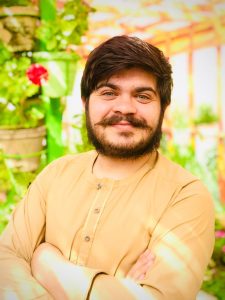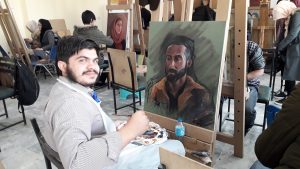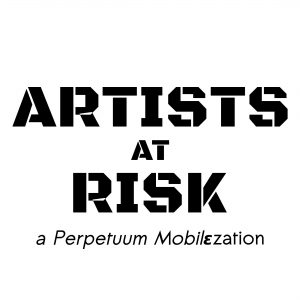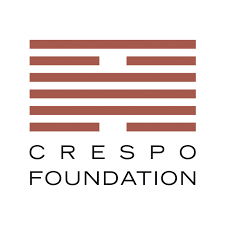
Iqbal Ahmad Tarnak
Iqbal Ahmad Tarnak (1997), an artist from Afghanistan, is currently an Artists at Risk (AR)-Resident at Moosdorf Korrektiv e.V. in Berlin, Germany. At home painting with oils, Tarnak has recently begun working on contemporary and conceptual artwork, and he is also a graphic designer. He takes his inspiration from his surroundings and filters it through academic reading and contemporary art, be it installation art, video art, performance art and more. Tarnak has shown his work in three exhibitions so far.
When Tarnak was four years old, war broke out in Afghanistan, and he had to relocate from the Zabul province to the capital, Kabul, with his family. After the 9th grade, he studied at the Fine Arts and Crafts High School and Institute. He then joined the Painting Department at the Fine Arts Faculty at Kabul University and has also studied contemporary arts at the Center for Contemporary Arts Afghanistan (CCAA), of which he is a member, and at the Studio of Contemporary Arts (SCA) at the Fine Arts Faculty at Kabul University. Further, Tarnak has studied the English language, calligraphy and graphic design.

Iqbal Ahmad Tarnak
In addition to appearing on many cultural shows on TV, Tarnak has taught drawing and writing at the Nesar Arts Center and Anzoor Art Academy and art at two schools.
In the words of Tarnak, “In a country where painting is religiously and socially forbidden, the essence of a painter is courage”.
After escaping Afghanistan, Iqbal Tarnak, has been an Artists at Risk (AR)-Resident at the AR-Moosdorf Korrektiv e.V. Residency in Berlin, Germany, which is co–funded by the Crespo Foundation and co-organised by Perpetuum Mobile (PM) as part of the AR-Network. The AR-Network is coordinated by the AR-Secretariat, which is funded by the Swedish Arts Council’s Programme for Artistic Freedom and the Ministry of Foreign Affairs of Finland’s Centre for Peace Mediation.


![]()
